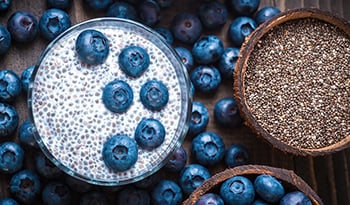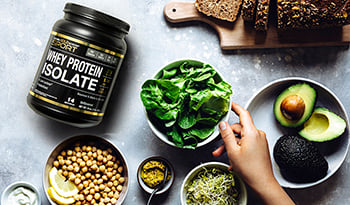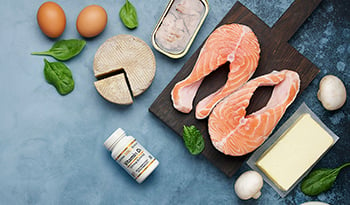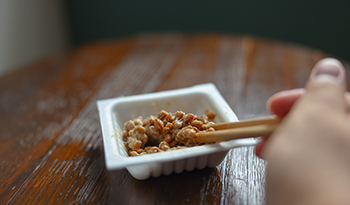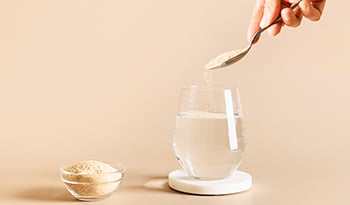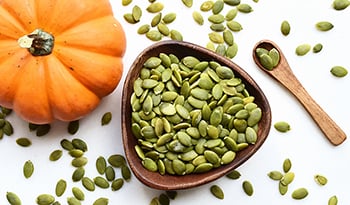Add Probiotics to Your Routine for Optimal Health
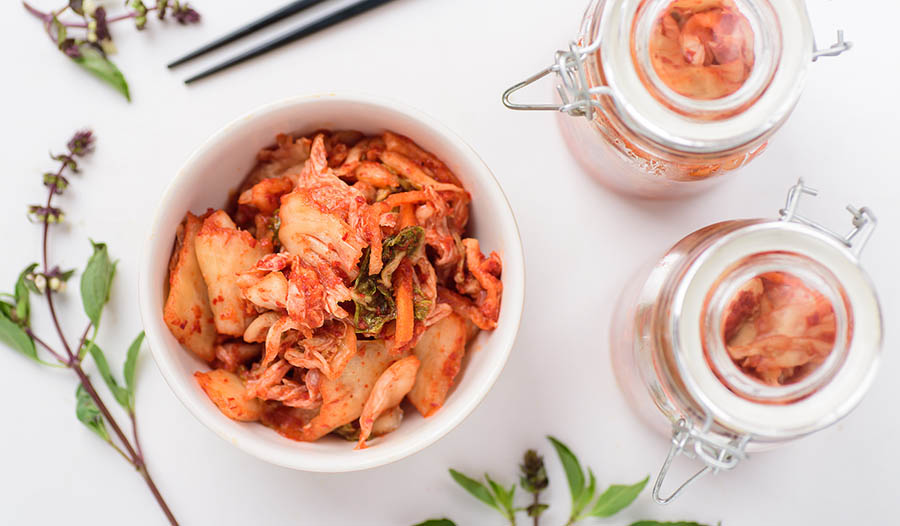
When it comes to gut health, probiotics are regularly touted as the all-star supplement and food group to include in your diet. Because of their popularity, many of us start consuming probiotics in supplement or food form without really knowing the wide array of benefits they provide beyond helping our digestive system.
In order to fully grasp the importance of probiotics, let’s look at a specific aspect of our digestive system, our microbiome. You’ve probably heard that our digestive system is home to an intricate ecosystem of micro-organisms and bacteria (between 30 to 100 trillion micro-organisms). This microbiome does more than just digesting the food we consume—it’s involved with a slew of processes in our body: it acts as a protective barrier for our intestines, provides defense against pathogens, assists with nutrient assimilation, regulates our mood and sleep cycles, and even facilitates the creation of neurotransmitters in our brain. However, many variables can negatively impact our gut’s ecosystem, so taking regular probiotics to keep this system in tip-top shape is crucial.
When the healthy bacteria in our gut get out of balance from the food we eat, the medications we take, or even environmental toxins, our gut health starts to go haywire. This can lead to bloating; digestive issues; colds, if our immune system becomes compromised; and even anxiety, due to the mind-gut connection.
This is where probiotics come into play. When taken regularly, probiotics deliver “good” bacteria to our system, which in turn helps regulate a multitude of processes to keep us healthy. There are multiple types of probiotic strains that have very different purposes. Some probiotic bacteria strains help protect our digestive system, other strains specifically help our immune system, and so on.
Even if you eat probiotic-rich foods, supplementation is recommended when your gut is really out of balance due to taking medications like antibiotics. Let’s take a deeper look at what else probiotics do for our benefit.
Aid Digestive Health
When our gut is flourishing with healthy bacteria from probiotic supplementation, there’s an extra line of defense against harmful pathogens and digestive stress. Not only do they defend against germy invaders, but probiotics also help prevent digestive issues down the road, which in turn leads to a ton of positive side effects such as more energy, less bloating, and production of health-boosting nutrients in our intestines. Having a good balance of bacteria in your intestines also helps you absorb the nutrients in other foods.
Boost the Immune System
Did you know that 70 percent of our immune system is located in our gut? This is why individuals who eat a nutrient- and probiotic-rich diet focusing on plant-based foods have such strong immune systems, and those whose diets consist of processed and refined foods tend to get more colds and other illnesses throughout the year.
May Help Regulate our Mood
Recent studies have linked gut health and mood disorders like anxiety and depression. For example, one study showed how eating a diet rich in probiotics diminished social anxiety, further confirming the existence of a mind-gut connection.
Keep Skin Glowing and Supple
It’s common knowledge in the wellness space that what you eat can show up on your skin. By keeping probiotics on hand, you can calm down irritations like rosacea, acne, and even eczema. Many skin-care brands are now starting to infuse their products with topical probiotics to help those with skin conditions calm down redness and inflammation.
Here are a couple of tips to get the most from probiotic supplementation. Take the supplements right before or after you eat to ensure stomach acid levels are at their lowest. The food will also cushion the supplement’s journey to your large intestine. Taking your supplement with a fiber-rich meal will provide extra “power” for the probiotic to do its job.
Whether taken topically or internally, probiotics in your diet or supplementation routine provide many benefits beyond simply gut health. And since the probiotic options on the market are almost endless, it’s easy to put these all-stars in play to keep you at your healthiest.
Reference:
- https://www.sciencedirect.com/science/article/pii/S0165178115002140
DISCLAIMER:This Wellness Hub does not intend to provide diagnosis...


















































































